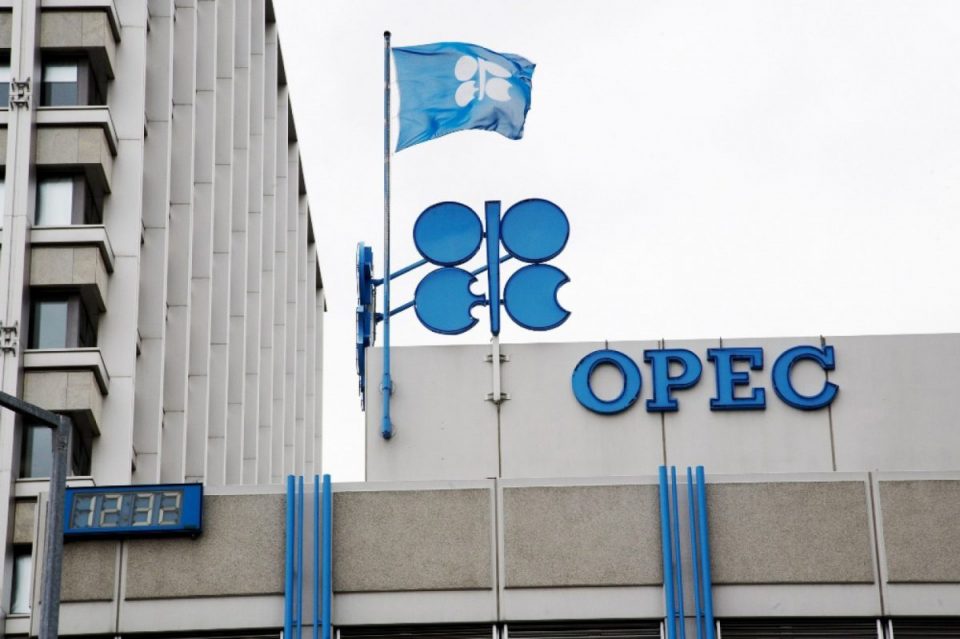The global economic devastations caused by COVID-19 pandemic led to the shrinking of oil demand by between nine and 10 million barrels per day (bpd) in 2020, but there is hope demand will recover this year by between five and six million barrels per day in view of the vaccine against the virus.
This was among the major findings by leading international energy groups including the International Energy Agency (IEA), the International Energy Forum (IEF) and the Organization of the Petroleum Exporting Countries (OPEC).
At a symposium held yesterday in Riyadh, Saudi Arabia, via videoconference, tagged ‘IEA-IEF-OPEC Symposium on Energy Outlooks,’ 11th in the series, the three organizations discussed global energy security and market stability.
In a joint press statement, the energy groups examined the impact of the COVID-19 pandemic on global energy markets and the outlook for global energy security and market stability. Hosted by the IEF, the symposium reviewed the IEA’s and OPEC’s short-, medium- and longterm outlooks, which are analyzed in the newly released IEF-RFF Outlooks Comparison Report. Produced by the IEF and Resources For the Future (RFF), the report, posted on the IEF website, highlights a reset in energy outlooks after the biggest demand shock in history last year.
“The pandemic’s impact on energy demand is unparalleled in the history of energy markets,” says IEF Secretary-General, Joseph McMonigle. “The symposium explored what government policies and industry responses are necessary to safeguard the long-term stability of energy markets.”
Among the report’s major findings were that the pandemic led to oil demand contracting by 9-10 million barrels per day in 2020, but it is expected to rebound by 5-6 million barrels per day this year. The pandemic has also led to a downward revision in long-term annual economic growth by as much as 0.8 percentage points in some outlooks, the report noted.
The Symposium is part of a wider joint programme of work by the three organizations originating from the 12th International Energy Forum held in Cancún, Mexico in March 2010. The Symposium was live-streamed and open to the public.
The Executive Director of the IEA, Dr Fatih Birol, said: “Dialogue and cooperation will be increasingly vital to steer the global energy system towards a future that is fit for tomorrow’s generations, where energy is abundant, affordable, clean and is used to underpin growth and development.”
In his opening remarks to the Symposium, OPEC Secretary General, Mohammad Sanusi Barkindo, recognized the vital contributions of the OPEC and non-OPEC countries participating in the Declaration of Cooperation (DoC) in helping to stabilize the oil market over the past year, and the importance of close dialogue with the G20, the IEA and IEF in supporting market rebalancing efforts. He also emphasized the need for continued investment in the oil industry to ensure stability of supply and to help maintain an inclusive approach to addressing climate change, the energy transition and energy access challenges. “These investments are essential for both producers and consumers,” he said.
“In our fast-changing and unpredictable world, we seek to contribute to greater stability, more predictability and enhanced transparency,” the OPEC Secretary General told the Symposium. “We constantly seek to improve our capacity to do so, for we believe this will help us build a better future, one which serves the interests of generations of producers and consumers.”
Featured speakers at the Symposium included HRH Prince Abdulaziz bin Salman Al Saud, Minister of Energy of Saudi Arabia; Mr. McMonigle; Dr Birol; Mr. Barkindo; HE Shri Dharmendra Pradhan, Minister of Petroleum, Natural Gas and Steel, India; HE Timipre Sylva, Minister of State for Petroleum Resources, Nigeria; Yury Sentyurin, Secretary-General, Gas Exporting Countries Forum (GECF); Francesco La Camera, Director-General, International Renewable Energy Agency (IRENA); Vicki Hollub, CEO Occidental Petroleum; Felipe Bayón Pardo, CEO of Ecopetrol; and Spencer Dale, Group Chief Economist at BP.
GECF Secretary General Sentyurin, said: “Despite the pandemic, GECF Members have displayed outstanding discipline and resilience in the uninterrupted fulfillment of their obligations towards all contracting parties.”
“It is too early to write off hydrocarbons as they will remain the dominating source in the global energy mix for the foreseeable future,” he added.
Other key findings in the IEF-RFF Outlooks Comparison Report include:
*Fossil fuels are expected to dominate the primary energy mix thru 2040, even in scenarios where countries meet the Paris Agreement’s climate goals.
*The gap between current pathway scenarios and alternative scenarios is large and growing annually, signalling that the zero-carbon emissions scenario may not be achieved.
*Demand for oil is expected to be stable over the long term globally, although demand will likely shift from developed to developing countries.
*Differing outlooks on the expected importance of hydrocarbons suggest that new technologies such as carbon capture, use and storage (CCUS) could have a bigger role to play.
*Nuclear, hydro, wind and solar will account for a majority of growth in the electricity sector, while coal is expected to decline and natural gas faces an uncertain future as a transition fuel.
*Growing climate ambitions in the lead up to COP26 will have significant implications for the energy sector, which accounts for three-quarters of global emissions.




